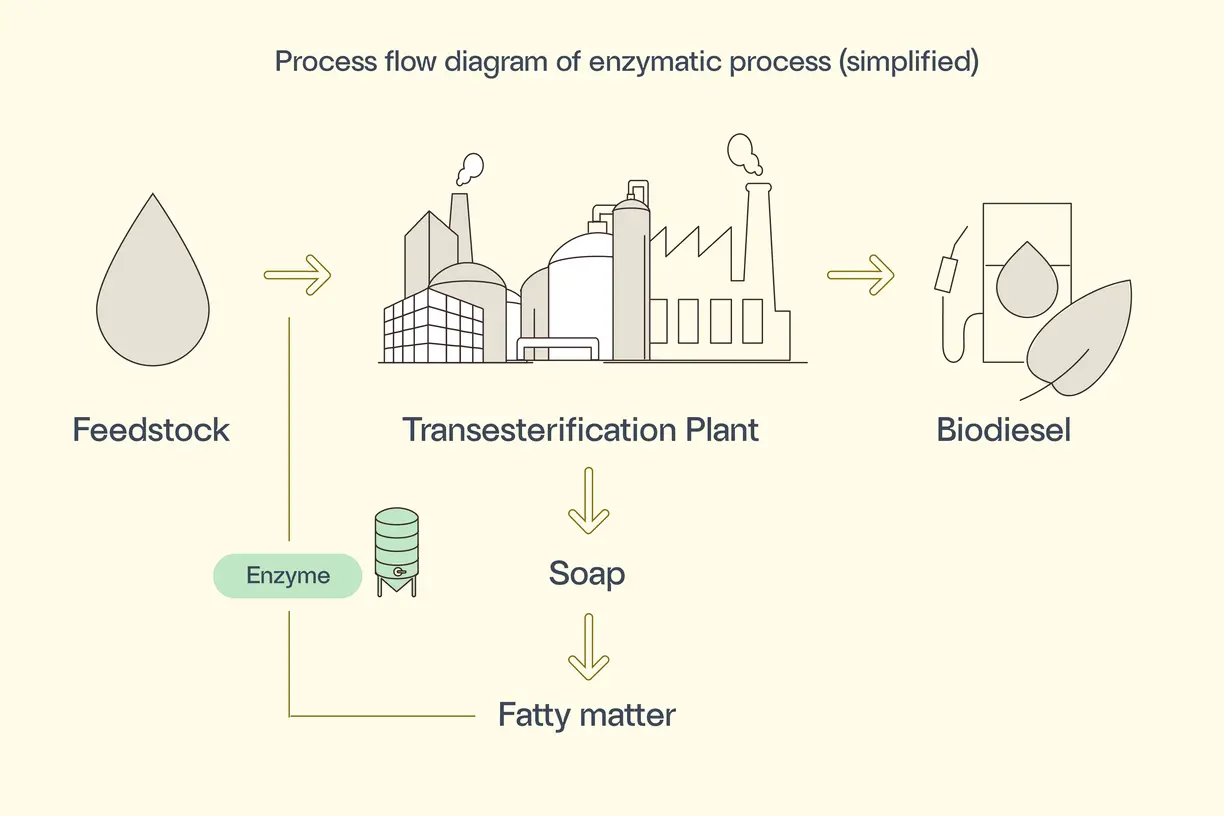
Upgrade oleins in your chemical biodiesel plant
Boost profits and lower CAPEX with our no-risk, bolt-on solution
Biodiesel plants using rapeseed, palm, or soybean oil feedstocks typically lose up to 5% in the form of soap stock. This soap stock is typically either sold at a considerable discount or converted to FAME biodiesel via acid esterification. Acid esterification creates a number of disadvantages, including the creation of challenging byproducts, an unappealing black color, and dimethyl ether.
Additionally, corrosion from acid esterification can create a high CAPEX.
Using enzymatic technology, you can boost your profit by upgrading your oleins to biodiesel. Eversa® Transform 2.0 increases yield by converting oleins from chemical biodiesel to crude FAME, which is recirculated back to the chemical biodiesel process to deliver on-spec biodiesel of less than 0.25% FFA. Eversa® Transform 2.0 has been proven to convert oleins to crude FAME (3-5% FFA).

This bolt-on solution with a batch reactor at ambient temperature and pressure produces significant results:
-
Up to €1.0 million additional profit per year from
-
CAPEX as low as €0.5 million
-
Bolt-on solution poses no risk of plant down-time
Additionally, plants with integrated degumming of soy and rapeseed oil and biodiesel production can maximize profits using enzymatic degumming . The process takes glycerol from chemical transesterification to saponify FFAs in enzymatically degummed vegetable oil going into chemical transesterification.
With our FlexFit® process, Novonesis engineers can help you identify the best ways for your plant to maximize profits and transition to feedstock flexibility with our Eversa® Transform 2.0 biocatalyst.